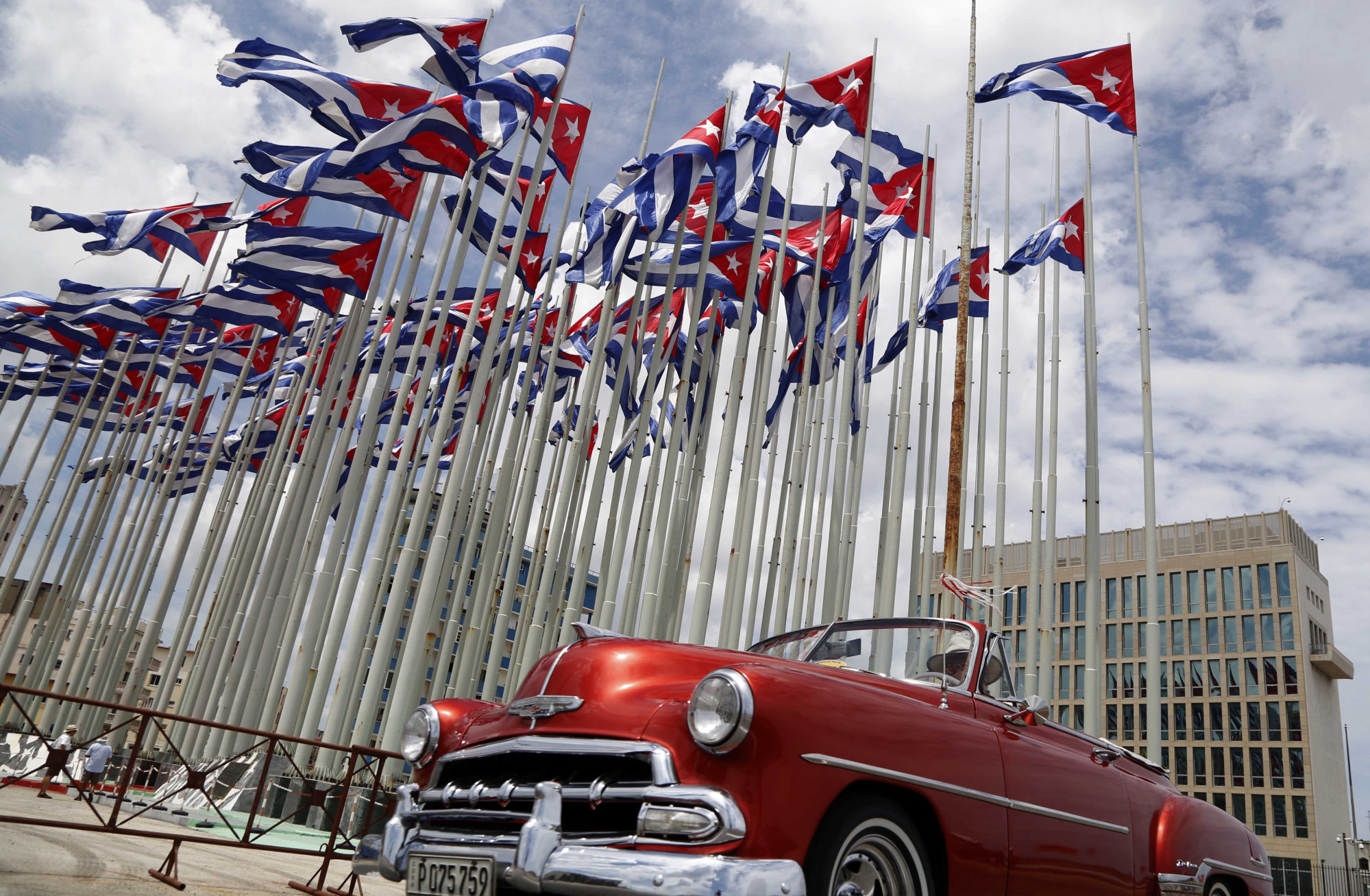
US officials call reports of China plan to build a spy facility in Cuba ‘not accurate’
- Denials of imminent threat to national security cap a day marked by fresh calls in Washington for tougher stance against Beijing
- ‘We are not aware of China and Cuba developing any type of spy stations,’ says Pentagon spokesman
The White House and Pentagon called media reports on Thursday of Chinese plans to build a spy facility in Cuba inaccurate, capping a day in which new concerns about national security threats emanating from Beijing sparked calls for a harder line against the country.
Beijing was said to have offered Havana cash payments on the order of “several billion” US dollars to be able to build the facility, according to The Wall Street Journal, which first reported the “secret” agreement citing US officials familiar with the plan.
The Journal and CNN both said US officials had learned of Beijing’s agreement with Havana in recent weeks and that it was not clear whether construction on the facility had begun.
Such an outpost would be situated about 100 miles from Florida, theoretically enabling China to monitor a range of communications, including emails, phone calls and satellite transmissions across the southeastern US, where many military bases are located.

On Thursday, Pentagon spokesman Pat Ryder said that “based on the information that we have … we are not aware of China and Cuba developing any type of spy stations”.
National Security Council spokesman John Kirby separately commented on the matter. Echoing the Department of Defence, Kirby told MSNBC in an interview that the reports were “not accurate”.
He added that the Biden administration had from the beginning expressed concern about Beijing’s efforts to exert influence “around the world, certainly in this hemisphere and in this [North American] region”.
“We are watching this very, very closely. And we will continue to take steps to mitigate any potential threat that those activities might pose,” Kirby said.
China should set up US communication channels: top Biden aide
Ryder expressed similar concerns, noting that the relationship between China and Cuba was “something that we continuously monitor”.
“Any type of coercive belligerent activity, within our hemisphere is something that we’re watching very closely when it comes to China,” he said.
Asked about the reports, a representative of Beijing’s embassy in Washington said: “We are not aware of the case and have nothing to share at the moment.”
Meanwhile, Cuban Vice-Foreign Minister Carlos Fernandez de Cossio called the report “totally mendacious and unfounded”.
Why US push for high-level military talks with China is getting nowhere
In a joint statement, Senate Select Committee on Intelligence chairman Mark R. Warner, Democrat of Virginia, and the panel’s vice-chairman, Marco Rubio, Republican of Florida, called on the US to respond to China’s “ongoing and brazen attacks on our nation’s security”.
“We must be clear that it would be unacceptable for China to establish an intelligence facility within 100 miles of Florida and the United States … We urge the Biden administration to take steps to prevent this serious threat to our national security and sovereignty,” the statement read.
If such a plan for a Chinese base in Cuba were under way, it would “convince more Americans that China is an enemy in a new Cold War”, according to Robert Daly, director of the Wilson Centre’s Kissinger Institute.
A Chinese base in Cuba would likely be large in scale and therefore “a destabilising factor” regardless of American listening capabilities in the western Pacific over the past 70 years, Daly said.
“China can credibly argue that establishing such a facility in the Caribbean is fair,” he added. “It cannot credibly argue that it isn’t a major new factor in a tense relationship.”
Additional reporting by Mark Magnier in New York


